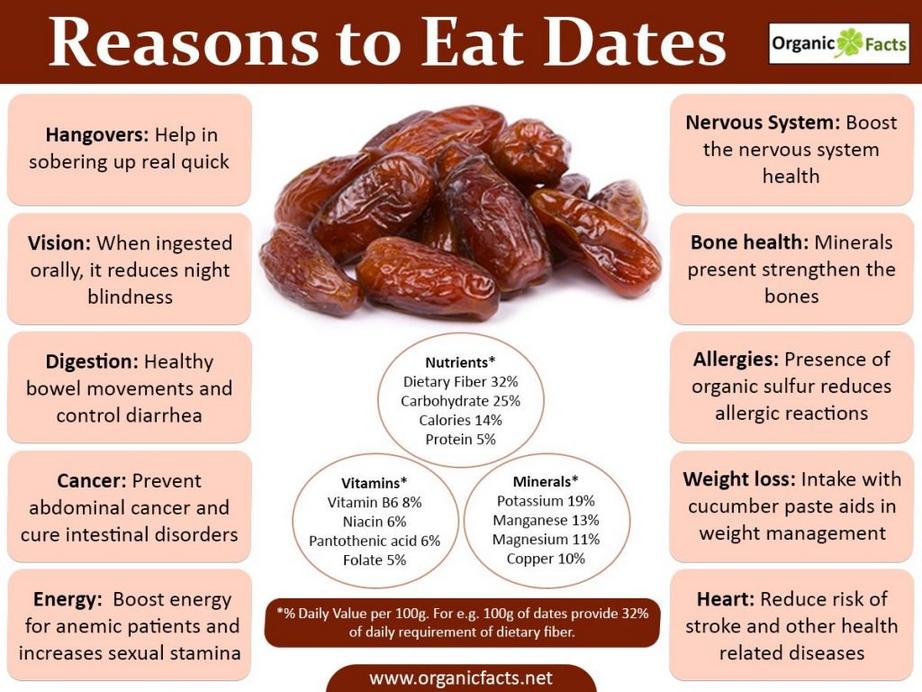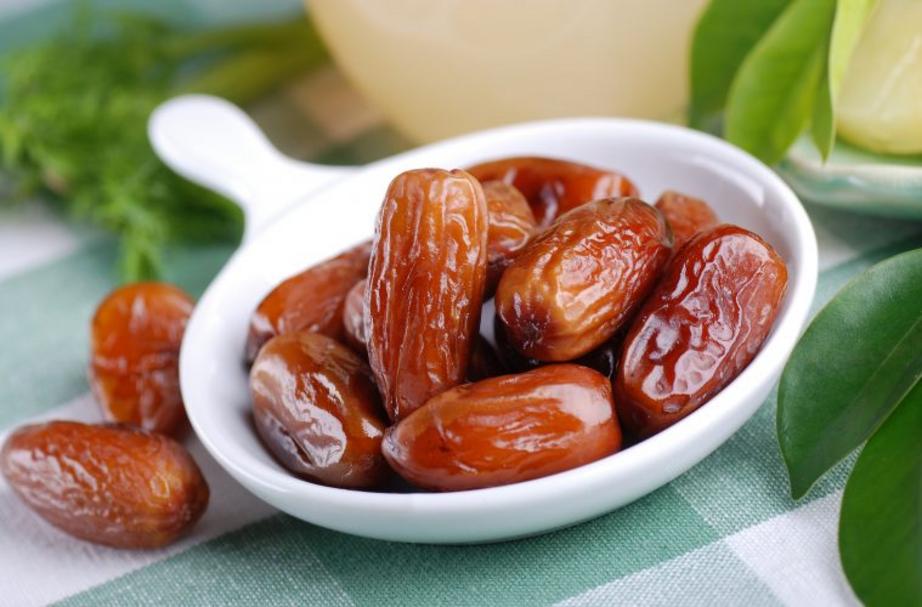Dates are one of the most healthiest fruits on the planet: the health benefits of dates
I have to admit, I avoided dates for years because I always thought they were the same thing as prunes, which as a kid I was NOT a fan of. But, after learning about some of the amazing health benefits packed into these sweet little fruits, I decided it was time to give them another try — and I’m so glad I did! Not only are they delicious, but they make a great addition to salads and smoothies, and are an easy and satisfying standalone treat. What’s more, they offer a ton of health benefits.
Health Benefits of Dates
Dates are an ideal food to provide energy and improve brain function. They are a rich source of minerals including iron, calcium, manganese, copper, phosphorous, magnesium, and potassium, all of which are essential to maintaining good health.
Dates have anti-inflammatory and anti-infective qualities, making them a great choice for those with autoimmune disorders or who are prone to chronic infections. Dates can help control heart rate and blood pressure, which in turn can protect against stroke and heart disease.
Dates are known for their fibre content, with most containing between 6.4–11.5% fibre, depending on the variety and the level of ripeness. Consumption of dietary fibre aids the body in a myriad of ways, and helps prevent colon, prostate, long, endometrial, breast, and pancreatic cancers.
Dates are also known to help lower the LDL (bad) cholesterol, relieve constipation, and treat symptoms of anemia.
Because of their high mineral content, dates are a superfood for bone health. They can help to ward off painful, debilitating diseases such as osteoporosis and can be especially beneficial in old age, when bone density deteriorates.
The protein in dates contains at least 23 types of amino acids, which is very high compared to most fruits. They are also a source of the following vitamins: vitamin C, Vitamins B(1), B(2), niacin, and Vitamin A.
Dates have also been used to increase sperm count and fertility in traditional medicine, and animal testing on male rats has shown similar results.
From Dr. Josh Axe:
“One Medjool date contains 66 calories, 15.95 grams of sugar and 0 trans fats. Since dates are naturally rich in carbohydrates (17.99 milligrams in a single date), they are an excellent source of energy. Medjool dates are also loaded with many vitamins and minerals.
One serving (100 grams) of Medjool dates contains:
- 6.7 grams fiber (26.8 percent DV)
- 696 milligrams potassium (19.9 percent DV)
- 54 milligrams magnesium (13.5 percent DV)
- 0.25 milligrams vitamin B6 (12.5 percent DV)
- 1.61 milligrams niacin (8 percent DV)
- 64 milligrams calcium (6.4 percent DV)
- 62 milligrams phosphorus (6.2 percent DV)
- 0.06 milligrams riboflavin (3.5 percent DV)
- 2.7 µg vitamin K (3.4 percent DV)
- 0.05 milligrams thiamine (3.3 percent DV)
- 149 IU vitamin A (3 percent DV)
- 0.44 milligrams zinc (2.9 percent DV)”

Varieties of Dates
There are many varieties of dates, including Medjool, Deglet, Noor, Zahidi, Honey, Khadrawi, Halawi, and Barhi. Each type is a little bit different and varies in sweetness, flavour, texture, and size. Medjool dates are among the most popular for their large size, smooth texture, and full, sweet taste.
How Can You Use Dates?
These are great additions to your smoothie or even to make healthy raw treats such as energy balls or bars. The great thing about dates is how naturally sweet and flavourful they are; when using dates, sugar and sugar substitutes are rarely necessary.
You can also blend some dates with a little bit of water for a delicious “caramel” sauce to dip apple slices in, or eat them straight up with celery and cucumber slices for a high-energy snack! There are tons of ways that you can use dates and easily incorporate them into your diet.
Check out the video below for a super simple raw peanut butter cookie recipe.

